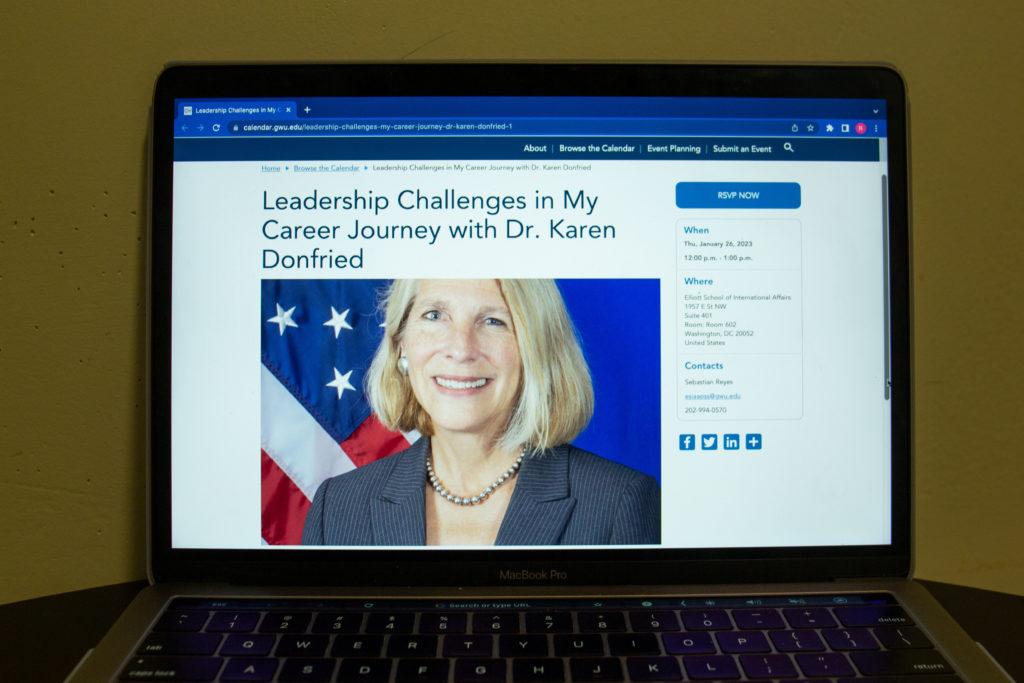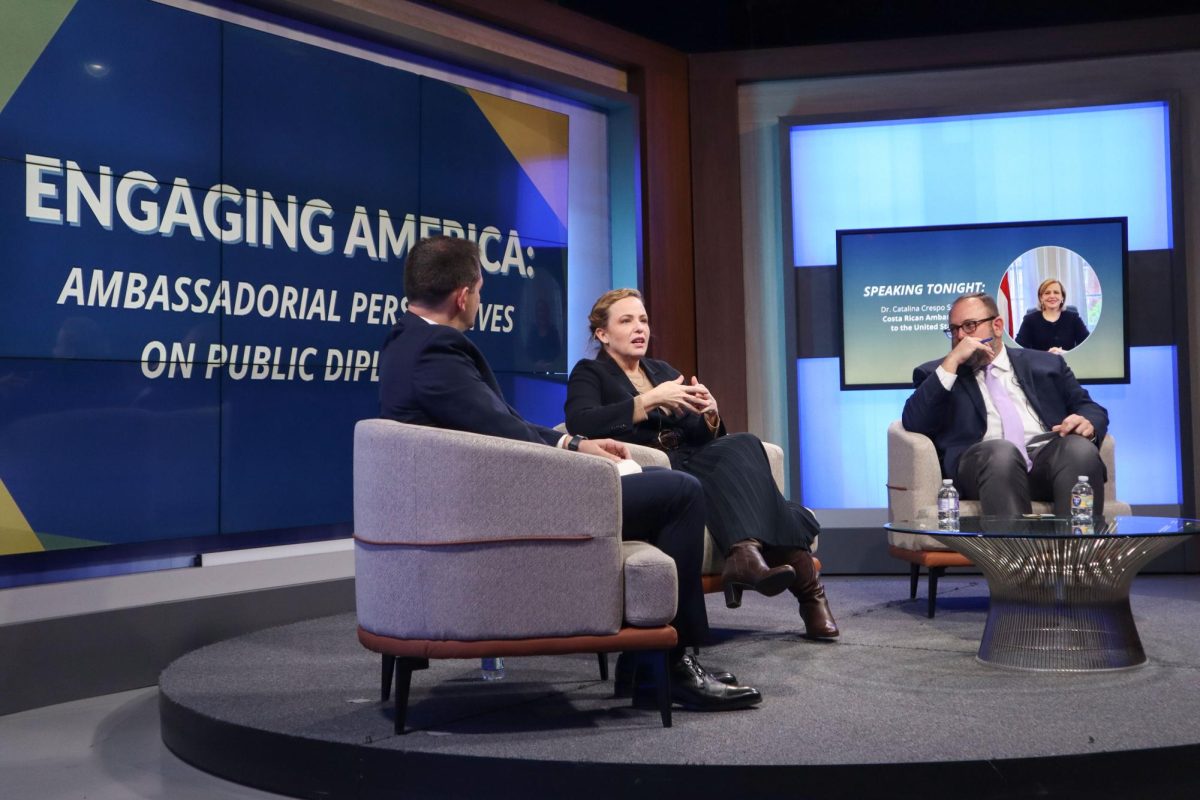A top U.S. State Department talked about the current state of Europe’s future in the backdrop of the war in Ukraine at an event Tuesday.
Karen Donfried, the assistant secretary of state for the Bureau of European and Eurasian Affairs, said the U.S. took many diplomatic actions leading up to Russia’s Invasion of Ukraine in February of 2022, like a week of diplomacy-focused talks between the two countries during the month before the war. The Elliot School’s Leadership, Ethics and Practice Initiative hosted the event, which was held at the Elliott School Tuesday.
Donfried structured the lecture around four words that characterize successful leadership strategies to build relationships with U.S. diplomatic powers – consistency, trust, responsibility and principle.
Donfried said President Joe Biden has been consistent in the centralization of “revitalizing” U.S. alliances and partnerships. She said his focus on this aspect of U.S. diplomatic relations helped build a “broad” coalition against Russian aggression.
“His message to the world was, ‘The United States is stronger when we work together with our close allies and partners,’” Donfried said.
Donfried said the U.S. began receiving intelligence around October 2021 about Russia starting to gather the resources necessary to invade, setting up the U.S. to reach out to the Russians for diplomatic talks. She said U.S. officials worked hard to prevent the war from happening in the months before it began.
“We engaged in diplomacy with Russia,” Donfried said. “I actually ended up being the official who was in Moscow in December.”
Donfried said the war in Ukraine isn’t solely about Ukraine itself but also about defending the European border and global stability. She said the war in Ukraine raised concerns amongst many countries worldwide about their own sovereignty compared to their “stronger” and “larger” counterparts.
At the conclusion of the event, Donfried ended with advice about having a passion for one’s work for those studying international relations.
“There is nothing more important than having smart, curious, engaged people of whatever country you represent going into government,” Donfried said. “So that you’re not going to go in for the money, but if you care about these issues, there will be nothing more rewarding than serving your government on foreign policy.”











